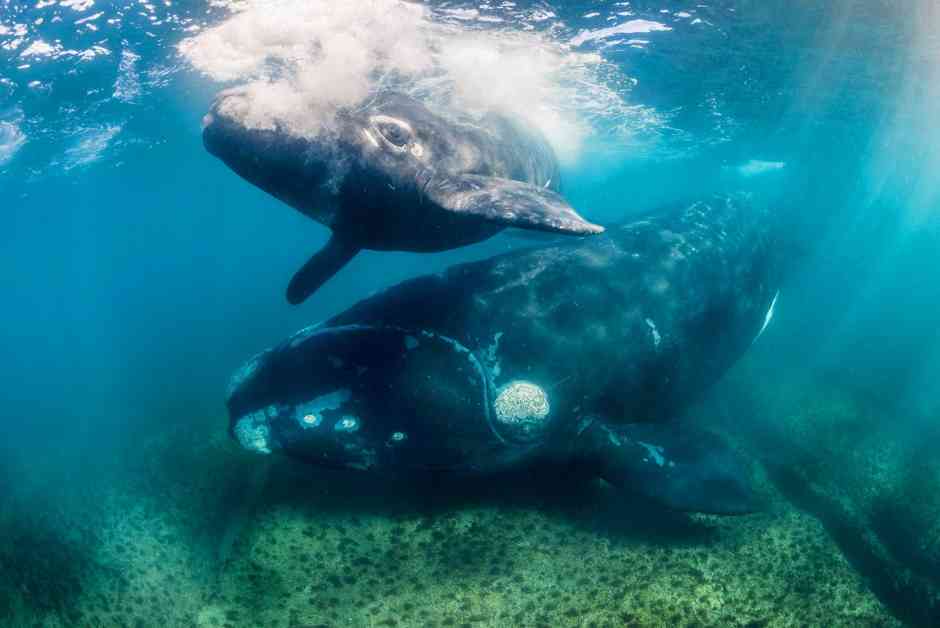Southern right whales have been discovered to live much longer than previously believed, with some individuals reaching a remarkable age of 150 years. This groundbreaking revelation comes from a recent study published in the journal Science Advances, shedding new light on the longevity of these majestic creatures. The findings challenge conventional wisdom about the lifespan of these whales, which were previously estimated to live only 70-80 years.
The research, conducted by a team of scientists, focused on southern right whales and their closely related counterparts, North Atlantic right whales. The study revealed that while southern right whales can live up to 150 years, North Atlantic right whales have a significantly shorter lifespan, with an average of only 22 years and very few individuals living past 50. This stark contrast in longevity is primarily attributed to human-induced threats such as entanglements in fishing gear and ship strikes, which have decimated the North Atlantic right whale population.
Photo Identification Reveals Longevity
The study used a unique method of photo identification to track individual female whales over several decades. By analyzing photographs of these whales year after year, researchers were able to create survivorship curves that estimated the probability of whales disappearing from the photographic record as they aged. These survivorship curves provided valuable insights into the maximum potential lifespans of these whales, revealing the astonishing longevity of southern right whales.
Implications for Conservation
Understanding the true lifespan of these whales has significant implications for conservation efforts. Animals with long lifespans, like baleen whales, reproduce slowly and have extended intervals between births. This knowledge is crucial for developing effective conservation and management strategies to protect these vulnerable species in the face of climate disruption and other threats.
Future Research and Conservation
Further research is needed to explore the impact of whaling on the number of older individuals in whale populations and predict when these populations will recover. The study highlights the urgency of implementing robust management actions to ensure the survival of North Atlantic right whales and other vulnerable species. As we strive to protect these magnificent creatures, it is essential to consider their long lifespans and unique life histories in conservation planning.
The discovery of the extended lifespan of southern right whales offers a glimpse into the fascinating world of these marine giants and underscores the importance of safeguarding their future. By unraveling the mysteries of these majestic creatures, we gain a deeper appreciation for the wonders of the natural world and the urgent need to protect it for generations to come.




